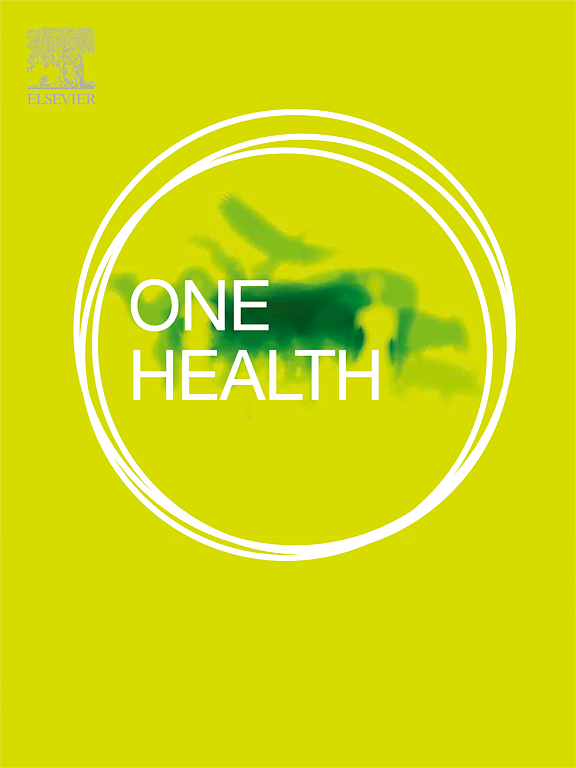One health approach to Rickettsia spp.: Brazilian indigenous individuals, their dogs and ticks, and healthcare professionals
IF 4.1
2区 医学
Q1 INFECTIOUS DISEASES
引用次数: 0
Abstract
Although Indigenous populations have historically overlapped the occurrence of vector-borne pathogens, no One Health approach study has investigated Rickettsia spp. in indigenous communities worldwide. Accordingly, the aim of this study was to investigate anti-Rickettsia spp. antibodies in indigenous individuals, their dogs and healthcare professionals, and Rickettsia spp. infection in ticks from ten indigenous communities of southern and southeastern Brazil. In overall, 66/771 (8.6 %) indigenous individuals, 9/99 (9.1 %) healthcare professionals and 116/386 (30.1 %) dogs were seropositive for at least one out four Rickettsia species tested by immunofluorescence assay (IFA). Out of 603 ticks collected from dogs in indigenous communities, 9/190 (4.7 %) tested positive to fragment of Rickettsia gltA gene by real-time PCR. The homologous antigenic reactions in dogs were significantly more frequent for R. bellii when compared to R. parkeri and R. amblyommatis and may be associated with the high diversity of hard and soft ticks in Americas, and R. bellii capacity of inhibiting another pathogenic rickettsia. Tick bite history increased the seropositivity (odds ratio = 9.29; p = 0.019) in healthcare professionals. This difference may be consequence of higher capacity to recognize tick bites by healthcare professionals, which highlighted the necessity of health care education for indigenous individuals for prevention and early recognition of tick-borne diseases in indigenous communities. In addition, the One Health approach herein has provided a holistic understanding of Rickettsia spp. infection in such communities and correspondent healthcare personal.
应对立克次体的一种保健方法:巴西原住民、他们的狗和扁虱以及医疗保健专业人员
本文章由计算机程序翻译,如有差异,请以英文原文为准。
求助全文
约1分钟内获得全文
求助全文
来源期刊

One Health
Medicine-Infectious Diseases
CiteScore
8.10
自引率
4.00%
发文量
95
审稿时长
18 weeks
期刊介绍:
One Health - a Gold Open Access journal.
The mission of One Health is to provide a platform for rapid communication of high quality scientific knowledge on inter- and intra-species pathogen transmission, bringing together leading experts in virology, bacteriology, parasitology, mycology, vectors and vector-borne diseases, tropical health, veterinary sciences, pathology, immunology, food safety, mathematical modelling, epidemiology, public health research and emergency preparedness. As a Gold Open Access journal, a fee is payable on acceptance of the paper. Please see the Guide for Authors for more information.
Submissions to the following categories are welcome:
Virology,
Bacteriology,
Parasitology,
Mycology,
Vectors and vector-borne diseases,
Co-infections and co-morbidities,
Disease spatial surveillance,
Modelling,
Tropical Health,
Discovery,
Ecosystem Health,
Public Health.
 求助内容:
求助内容: 应助结果提醒方式:
应助结果提醒方式:


